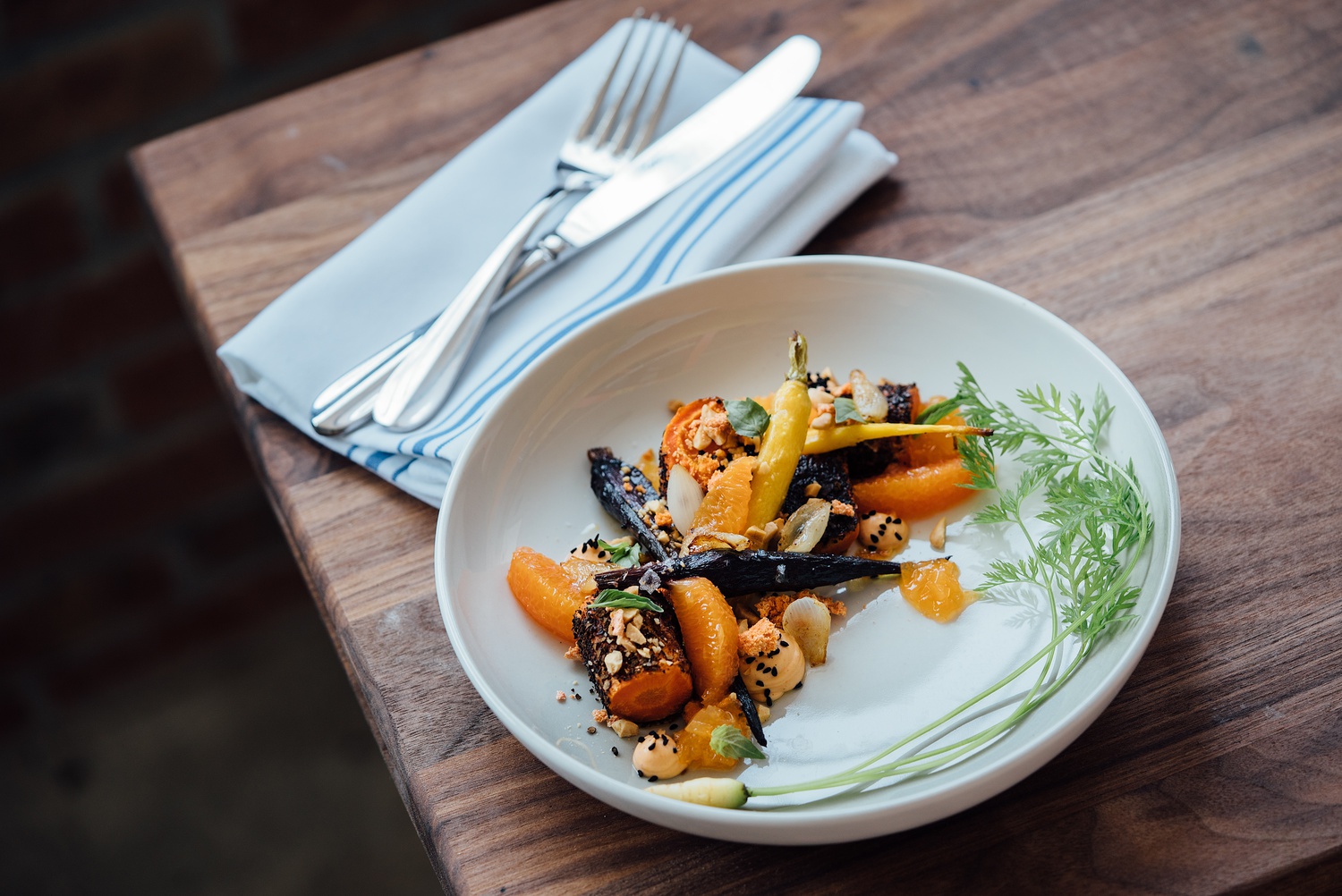
News
Summers Will Not Finish Semester of Teaching as Harvard Investigates Epstein Ties

News
Harvard College Students Report Favoring Divestment from Israel in HUA Survey

News
‘He Should Resign’: Harvard Undergrads Take Hard Line Against Summers Over Epstein Scandal

News
Harvard To Launch New Investigation Into Epstein’s Ties to Summers, Other University Affiliates

News
Harvard Students To Vote on Divestment From Israel in Inaugural HUA Election Survey
Is Veganism the New Fine Dining?
In the world of fine dining, established restaurants and chefs set the standards for trends in global food culture. The early 20th century introduced the food world to the gastronomic innovation of Lyon, where the legendary Eugénie Brazier opened La Mère Brazier, her flagship restaurant. Brazier’s light yet classical French dishes became the epitome of gastronomy and the beginning of nouvelle cuisine.
Later, other icons emerged from under Brazier’s wing, including the famed Paul Bocuse. With respect to a long culinary tradition and history, Bocuse refined and cultivated older recipes to maximize their potential, positioning him as a leading figure in nouvelle cuisine. Following in Bocuse’s footsteps, restaurants around the world continued to contribute to the evolution of food culture, most famously with the Adrià brothers at the impeccably avant-garde El Bulli, launching gastronomy into the future by being persistently innovative and unique at all costs.
In more recent years, fine dining establishments have taken a less uniform approach to gastronomy and innovation. Modena-based Massimo Bottura focuses on the revitalization and reinterpretation of tradition and terroir in his renowned restaurant, Osteria Francescana. On the other side of the world, Mashama Bailey’s The Grey, in Savannah, Georgia, examines the history of the American South, both in cuisine and culture. In Chicago, Alinea, led by Grant Achatz, follows in El Bulli’s footsteps by relentlessly pushing molecular gastronomy to a somehow even more molecular level — think floating balloons made of sugar, fruit, and helium, among many other inventions.
Clearly, these chefs have brilliantly mastered their crafts and philosophies, paving their own paths in the global food culture. Yet, with so much variation, it is hard to say what this generation’s defining movement will be in the evolution of cuisine.
Recently, veganism has attempted various coups d’états in haute cuisine establishments across the globe. In 2021, Daniel Humm’s Eleven Madison Park made its pivotal switch to a plant-based menu. Generally, Humm’s transition to veganism received poor reviews in its early stages, most notably with a devastating account in the New York Times by Pete Wells. While Humm is, without a doubt, an extremely talented chef, his vegan dishes remained in their infancy a bit too long after the switch was implemented. Despite an initial setback, Eleven Madison Park gradually regained its prestige.
While most restaurants have not eliminated the use of all animal products, the emphasis on vegetarian and pescatarian offerings has undeniably gained more attention and thought. In 2001, Alain Passard announced that his Parisian restaurant, L’Arpège, a famously meat-focused establishment, would convert to a vegetarian menu. While Passard eventually reintroduced some meat and fish to his menu, L’Arpège remains mostly vegetable-focused, prioritizing the utmost respect and reverence for each ingredient.
Likewise, in San Francisco, Dominique Crenn removed meat from her menus, leaving diners with a delightfully pure and subtle pescatarian experience. While Passard limited meat to give vegetables the spotlight they’ve historically been refused, Crenn announced that the decision was made primarily for environmental reasons.
Passard and Crenn, among many others, have pioneered the movement of restricting meat-centered experiences from fine dining and placed their emphasis on often underappreciated ingredients in the world of haute cuisine. This subtle transition of global food culture from meat to vegetables has not cut out all animal products from menus, but only refocused the lens.
Veganism, or at least vegetable-centered food, seems to be a promising step forward in the future of fine dining. But, it is imperative to remember that plant-focused dining experiences will only succeed should each dish be made for the ingredient: A dish that would have originally relied on meat should not count on vegetables as a worthy substitute. Dishes have to be constructed for the ingredient, not in spite of it. Only then will fine dining realize veganism’s potential.
If the world of fine dining continues on this path, this generation’s defining moment in the evolution of cuisine may just be on the horizon.
Want to keep up with breaking news? Subscribe to our email newsletter.

